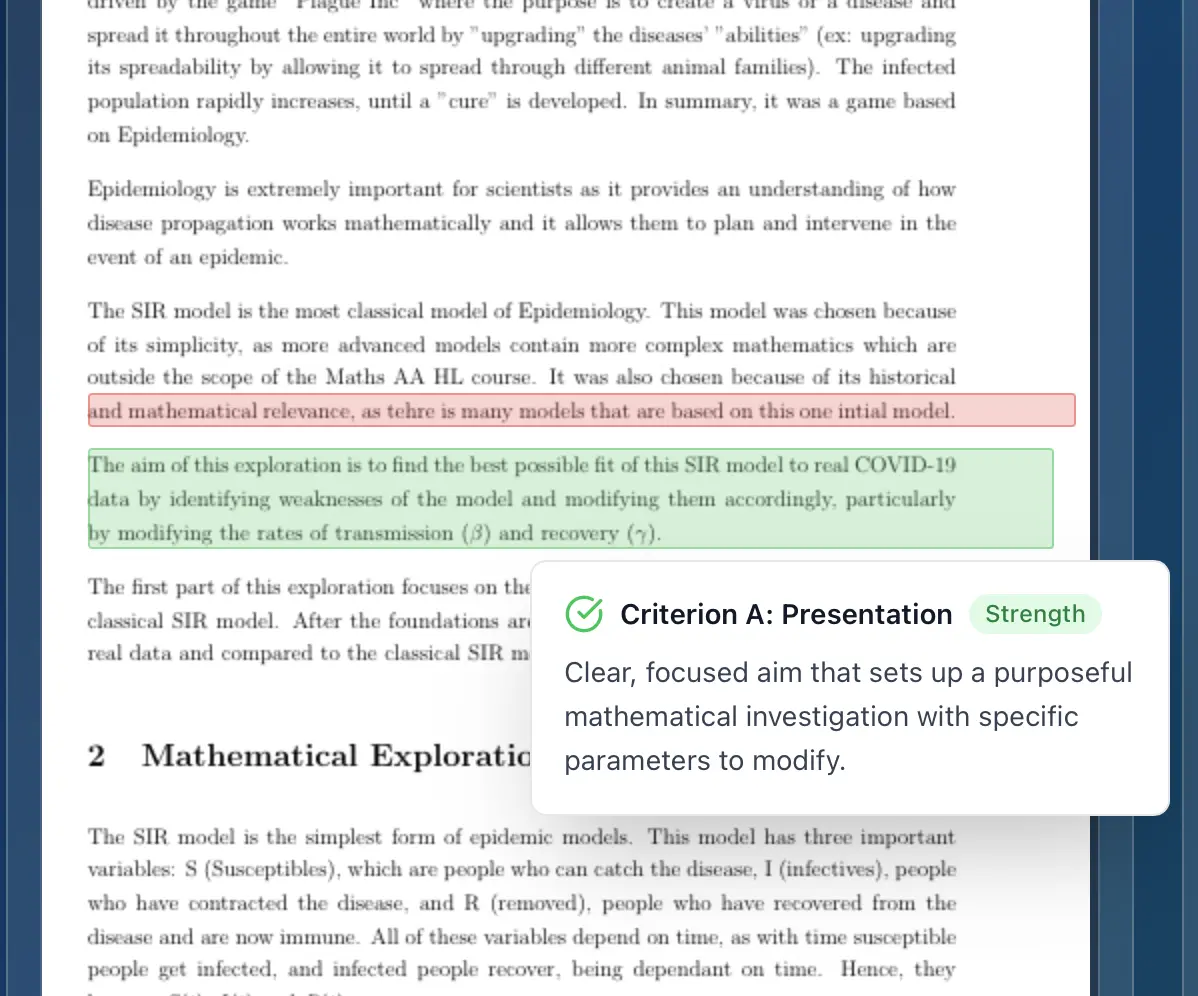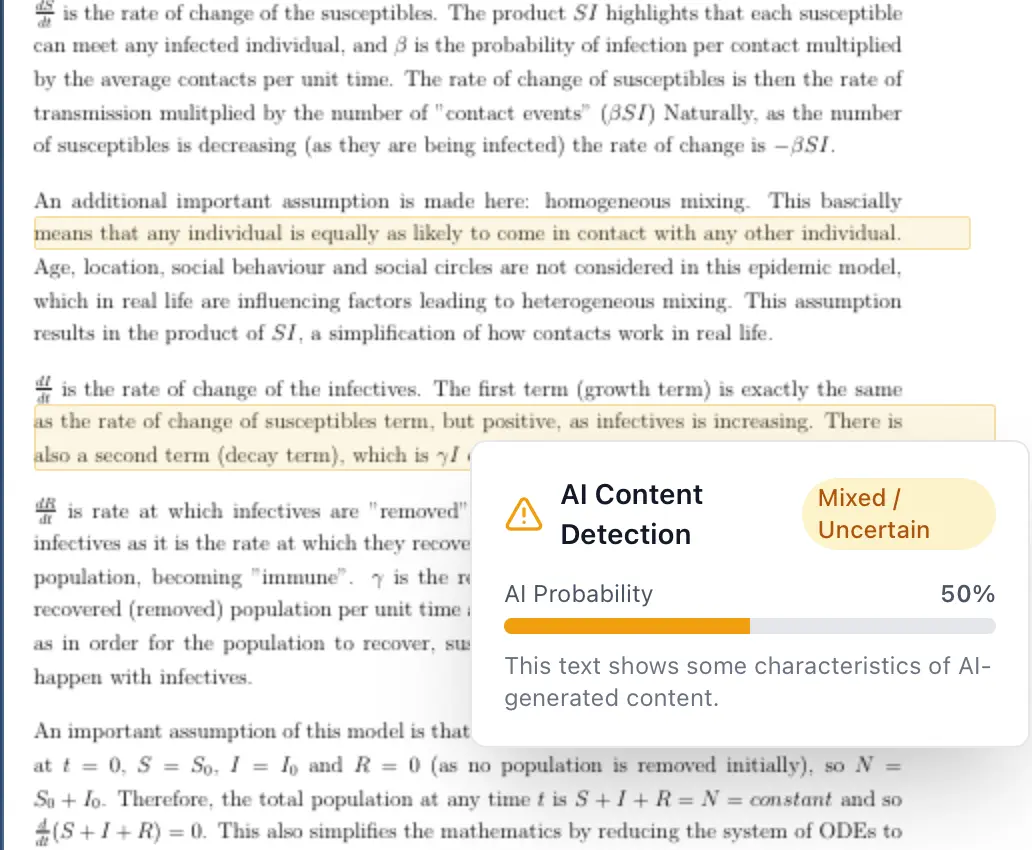The Art of Academic Writing for IB Assessments
Academic writing is the cornerstone of success in the International Baccalaureate (IB) program. Whether you're tackling an Extended Essay, crafting an Internal Assessment (IA), or preparing for final exams, mastering the art of clear, concise, and well-supported writing is crucial. This guide provides you with the essential strategies and techniques to excel in your IB assessments. We'll cover everything from understanding IB rubrics to leveraging technology for improved feedback and grading, ensuring you're well-equipped to achieve your academic goals. If you're looking for IB help, you've come to the right place.
Introduction (Answer the Query Immediately)
The International Baccalaureate (IB) program places a significant emphasis on academic writing across all subjects and assessment components. From crafting compelling Internal Assessments (IAs) to constructing well-reasoned exam responses, strong writing skills are paramount to success. This comprehensive guide is designed to equip IB students, teachers, and parents with the knowledge and tools necessary to master the art of academic writing for IB assessments. We'll delve into the specific requirements of different assessment types, explore effective writing strategies, address common challenges, and highlight how technology, including AI grading assistants, can enhance the learning and assessment process. Whether you're aiming for a perfect score or simply seeking to improve your writing skills, this guide will provide you with the insights and actionable advice you need to thrive in the IB program.
Struggling with IB Assessments?
Get instant, detailed feedback on your work with AI that understands IB criteria.

Core Content Sections
Understanding IB Assessment Requirements
Before diving into writing techniques, it's essential to understand the specific requirements of each IB assessment. The IB program utilizes a criterion-referenced assessment model, meaning your work is evaluated against pre-defined criteria rather than compared to the performance of other students.
- Internal Assessments (IAs): These are subject-specific assignments completed under teacher supervision. Each subject has its own IA requirements, including word limits, formatting guidelines, and assessment criteria. For example, a Biology IA requires a detailed investigation with a clear research question, methodology, and analysis, while a History IA focuses on historical inquiry and analysis of sources. Understanding the specific IB [subject] guide is crucial.
- Extended Essay (EE): This is a 4,000-word independent research paper that allows you to explore a topic of your choice in depth. The EE requires a well-defined research question, thorough investigation, critical analysis, and clear argumentation.
- External Assessments (Exams): These are standardized exams administered at the end of the IB program. Exam questions often require you to demonstrate your knowledge, understanding, and application of key concepts.
Actionable Tip: Familiarize yourself with the official IB subject guides for each course you're taking. These guides outline the assessment criteria, requirements, and expectations for each assessment component.
Structuring Your Writing for Clarity and Impact
A well-structured piece of writing is easier to understand and more persuasive. Here's a general framework you can adapt for different IB assessments:
- Introduction: Clearly state your research question, thesis statement, or main argument. Provide context and background information to set the stage for your writing.
- Body Paragraphs: Develop your argument or analysis in a logical and coherent manner. Each paragraph should focus on a specific point and provide evidence to support your claims. Use topic sentences to introduce the main idea of each paragraph and transitional phrases to connect your ideas.
- Conclusion: Summarize your main points and restate your thesis statement. Discuss the implications of your findings and suggest areas for further research.
Example: In a History IA, your introduction should clearly state your research question and the historical context of your inquiry. Your body paragraphs should analyze relevant historical sources and present your interpretation of events. Your conclusion should summarize your findings and discuss the significance of your research.
Mastering the Art of Argumentation
Argumentation is a key skill in academic writing. Whether you're writing an essay, a research paper, or an exam response, you need to be able to construct a clear and persuasive argument.
- Develop a Strong Thesis Statement: Your thesis statement should be clear, concise, and arguable. It should state your main point or argument and provide a roadmap for your writing.
- Provide Evidence to Support Your Claims: Use evidence from credible sources to support your claims. This could include data, statistics, quotes, examples, or historical facts.
- Analyze and Interpret Your Evidence: Don't just present evidence; explain its significance and how it supports your argument.
- Address Counterarguments: Acknowledge and address opposing viewpoints to strengthen your argument. Explain why your argument is more persuasive or valid.
Actionable Tip: Practice constructing arguments by writing short essays on different topics. Focus on developing a clear thesis statement, providing evidence to support your claims, and addressing counterarguments.
Citing Sources Accurately and Consistently
Proper citation is essential to avoid plagiarism and give credit to the original authors of the ideas and information you use in your writing. The IB program requires you to use a consistent citation style, such as MLA, APA, or Chicago.
- Use In-Text Citations: Include in-text citations whenever you quote, paraphrase, or summarize information from a source.
- Create a Works Cited or Bibliography: At the end of your paper, create a list of all the sources you cited in your writing.
- Follow the Guidelines of Your Chosen Citation Style: Consult a style guide or online resource to ensure you're following the correct formatting for your citations.
Example: If you're using MLA style, an in-text citation might look like this: (Smith 25). The corresponding entry in your Works Cited list would provide the full bibliographic information for the source.
Writing Style and Tone
Academic writing requires a formal and objective tone. Avoid using slang, colloquialisms, or personal opinions. Use clear and concise language and avoid jargon or overly complex sentence structures.
- Use Third-Person Perspective: Write from a third-person perspective (e.g., "The study found..." rather than "I found...").
- Avoid Emotional Language: Use neutral and objective language to present your arguments and evidence.
- Proofread Carefully: Proofread your writing carefully for errors in grammar, spelling, and punctuation.
Common Challenges/Mistakes Section
Many students struggle with academic writing in the IB program. Here are some common challenges and mistakes to avoid:
- Lack of Clarity: Failing to clearly state your research question, thesis statement, or main argument.
- Weak Evidence: Providing insufficient or irrelevant evidence to support your claims.
- Poor Organization: Failing to structure your writing in a logical and coherent manner.
- Plagiarism: Failing to cite sources properly or using someone else's work without attribution.
- Grammatical Errors: Making errors in grammar, spelling, and punctuation.
Solutions:
- Plan Your Writing: Before you start writing, create an outline to organize your thoughts and ideas.
- Gather Sufficient Evidence: Conduct thorough research to gather evidence to support your claims.
- Seek Feedback: Ask your teacher or a peer to review your writing and provide feedback.
- Use a Grammar Checker: Use a grammar checker to identify and correct errors in your writing.
- Understand the IB Rubrics: Know what the IB graders are looking for.
Pro Tip: Get AI-Powered Grading
Stop second-guessing your grades. Get instant feedback aligned with official IB rubrics.

Advanced Tips/Strategies Section
For students aiming for top marks, here are some advanced tips and strategies to elevate your academic writing:
- Develop a Unique Perspective: Go beyond simply summarizing existing research and offer your own original insights and interpretations.
- Engage with Complex Ideas: Don't shy away from challenging or controversial topics. Demonstrate your ability to grapple with complex ideas and present nuanced arguments.
- Master the Art of Synthesis: Integrate information from multiple sources to create a cohesive and compelling narrative.
- Refine Your Writing Style: Pay attention to the nuances of language and strive for clarity, precision, and elegance in your writing.
- Practice, Practice, Practice: The more you write, the better you'll become.
Technology and Modern Assessment Section
Technology is transforming the way we learn and assess academic writing. AI-powered tools can provide students with personalized feedback on their writing, helping them identify areas for improvement and develop their skills.
AI grading assistants, like Marksy, are revolutionizing the assessment process for IB teachers. Marksy provides instant, accurate, and detailed feedback on student work based on official IB rubrics. This saves teachers valuable time and ensures that students receive consistent and fair feedback. Marksy's key features include rubric-aligned scoring, detailed criterion-by-criterion feedback, and suggestions for improvement.
AI tools use official IB criteria to ensure accuracy and fairness in grading. This helps to eliminate bias and provide students with objective feedback on their work. The time-saving benefits for educators are significant, allowing them to focus on providing individualized support to students.
NATURAL INTEGRATION: Marksy, as a leading AI grading assistant, helps teachers provide consistent, detailed feedback on IB assessments. By leveraging AI, Marksy ensures that feedback is aligned with official IB criteria, providing students with clear guidance on how to improve their work. This helps students to understand exactly what they need to do to achieve their academic goals.
Conclusion with Clear Next Steps
Mastering the art of academic writing is essential for success in the IB program. By understanding the specific requirements of each assessment, developing effective writing strategies, avoiding common mistakes, and leveraging technology, you can improve your writing skills and achieve your academic goals.
Key Takeaways:
- Understand the IB assessment criteria.
- Structure your writing for clarity and impact.
- Master the art of argumentation.
- Cite sources accurately and consistently.
- Use a formal and objective writing style.
- Leverage technology to improve your writing and assessment.
Next Steps:
- Review the official IB subject guides for your courses.
- Practice writing essays and research papers.
- Seek feedback from your teacher or a peer.
- Explore AI-powered writing tools like Marksy to enhance your learning and assessment experience.
Ready to take your IB writing to the next level? Try Marksy for free today and see how AI can help you achieve your academic goals! [Link to Marksy Free Trial]